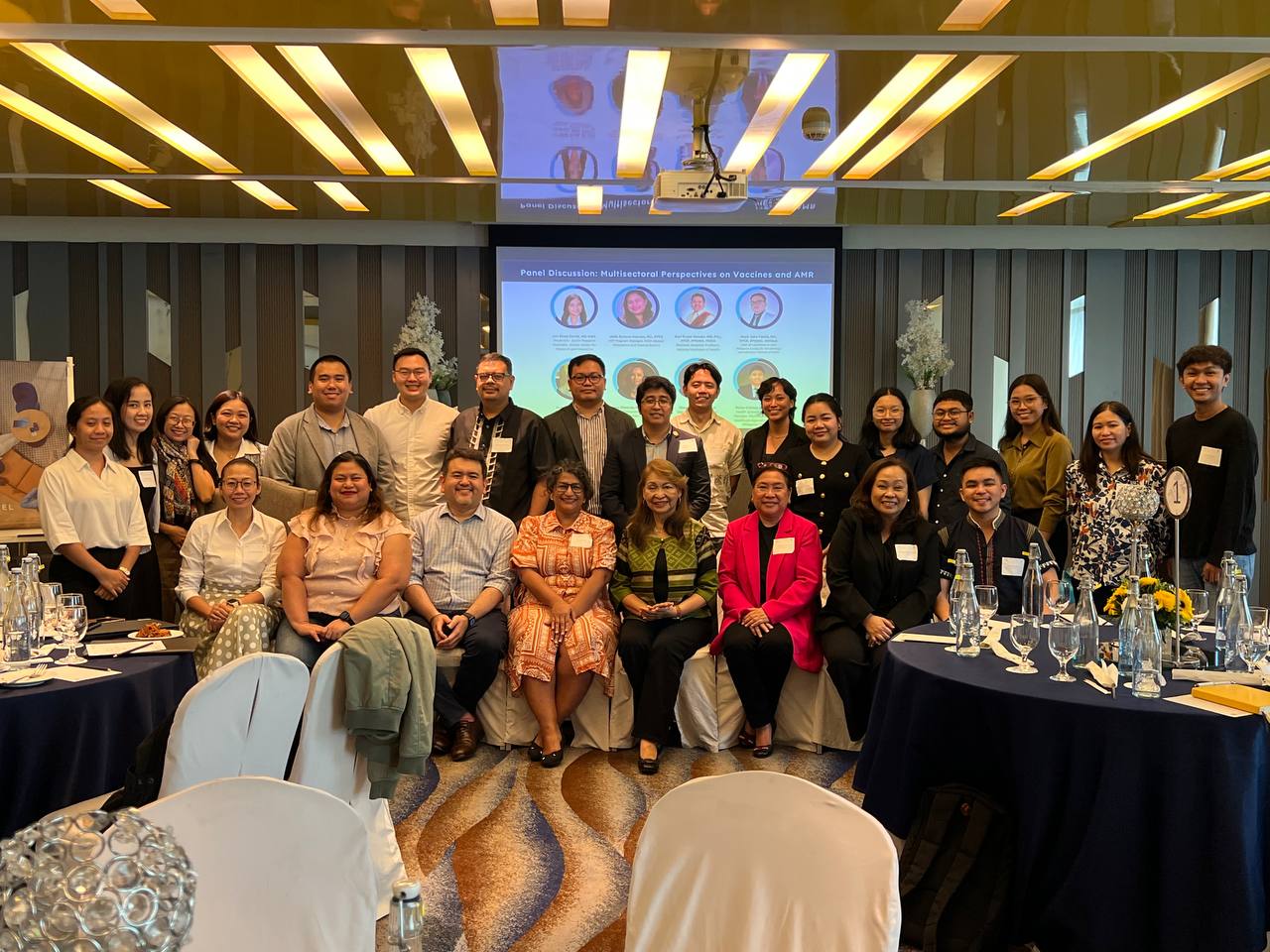Featured Research

Environmental Health
The Unseen Link: Vaccines and Antimicrobial Resistance in the Philippine Context
Antimicrobial resistance is already claiming lives, and the global pipeline for new antibiotics is shrinking. In August 2025, experts gathered to explore a critical question: Can vaccines become a frontline weapon against AMR? The science is clear—by preventing infections, vaccines reduce antibiotic use and slow resistance. But translating this into action means confronting data gaps, political barriers, and financing challenges. As one expert noted: "When we vaccinate, we reduce the frequency of these diseases. That means fewer antibiotics—used and misused." With no country in the Global South yet integrating vaccines systematically into AMR strategies, the Philippines has a chance to lead—if stakeholders can move from consensus to action.

Environmental Health
Advancing vaccine uptake to mitigate antimicrobial resistance (AMR) in low and middle-income countries of South or South-East Asia
This project explores how strengthening vaccine uptake can serve as a key strategy to mitigate antimicrobial resistance (AMR) in the Philippines and across South and South-East Asia. By reducing the burden of vaccine-preventable diseases and the unnecessary use of antibiotics, the study aims to provide actionable recommendations for national and institutional stakeholders to better integrate vaccination initiatives into AMR control efforts, ultimately contributing to stronger, more resilient health systems.

Environmental Health
Understand and mitigating the influence of extreme weather events on HIV outcomes: A global investigation
The Philippines faces the dual crises of a rapidly expanding HIV epidemic and intensifying climate-related disasters, yet little is known about how extreme weather events affect HIV prevention, treatment, and care. This study addresses that gap by examining the impacts of typhoons, floods, and droughts on people living with HIV, with a focus on vulnerable populations such as men who have sex with men, transgender individuals, and people who inject drugs. The findings will provide vital evidence to inform climate-adaptive HIV care strategies and guide policies that protect at-risk communities during environmental crises.

Environmental Health
Incorporating Climate Change Strategies into AMR Intervention and Implementation Research Projects: A Scoping Review
Antimicrobial resistance (AMR) and climate change are two of today’s most pressing global health challenges, with rising temperatures and extreme weather events accelerating the spread of resistant microorganisms, particularly in vulnerable low- and middle-income countries. This project undertakes a scoping review to examine how climate change influences the development of AMR in livestock and aquaculture systems, while also assessing climate-smart practices, policies, and collaborative models that address both issues. Through literature synthesis, expert roundtables, and community dialogues, it seeks to generate evidence and insights that can inform integrated interventions, strengthen policy, and guide future research at the intersection of AMR and climate change.

Health Systems
Health workforce issues and recommended practices in the implementation of Universal Health Coverage in the Philippines: a qualitative study.
The Philippines' Universal Health Coverage program faces a critical workforce crisis that threatens its very foundation. A new Ateneo de Manila University study reveals that while the country exports healthcare workers globally, it struggles to retain the professionals needed for its own ambitious health reforms. With only 7.92 physicians per 10,000 population and a shortage of 127,000 nurses, systemic barriers—from restrictive hiring policies to uncompetitive salaries—are driving away the very people meant to deliver healthcare for all Filipinos. The research identifies promising solutions, including scholarship programs and comprehensive benefits, but warns that without addressing these fundamental workforce issues, universal healthcare remains at risk.
Portfolios
-

Mental Health
On the promotion of mental well-being, the increasing prevalence of poor mental health, the perceptions around mental health, and the access to appropriate services and resources
View 20 more -

Environmental Health
On emerging environmental health issues such as sanitation, waste management, and health risks, and policies surrounding essential environmental health services
View 29 more -

Medical Education
On methods and strategies to effectively delivery essential medical and public health knowledge to students, trainees, and professionals
View 3 more -

Medical Device
On technological innovations that can impact individuals and communities at the primary to the tertiary levels of care
View 3 more -

Neuro-developmental Disorders
On services, new evidence, and interventions for individuals with autism and other neurodevelopmental disorders
View 11 more -

Digital Health
On the use of digital methods to improve health data management, service delivery, and health promotion
View 7 more -

Health Systems
On policies, processes, and interventions that impact our complex health system in order to achieve collective health goals
View 41 more -

Special Topics
Lorem ipsum dolor sit amet, consectetur adipiscing elit. Maecenas pulvinar laoreet sollicitudin. Maecenas eu scelerisque tellus.
View 19 more -

Innovation
dedicated to advancing health innovation in the Philippines. It serves as a platform where research, technology, and collaboration come together to create solutions that address pressing health challenges.
View 1 more
